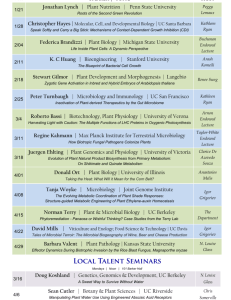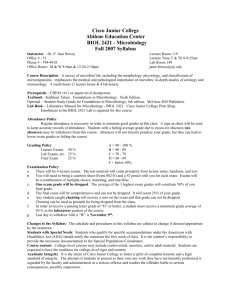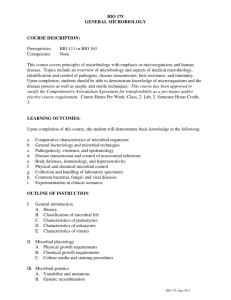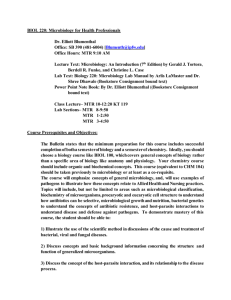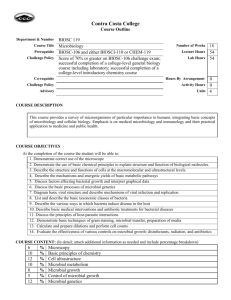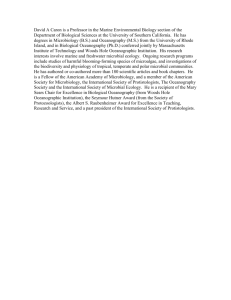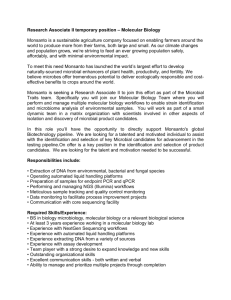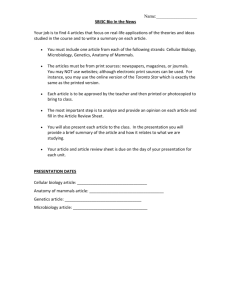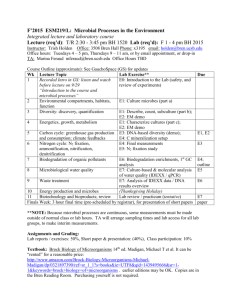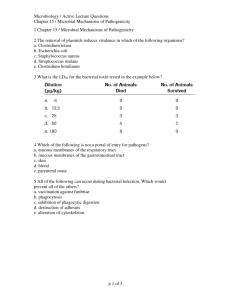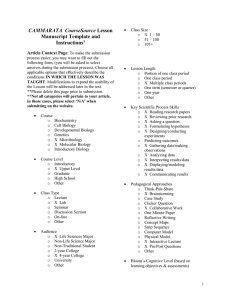BIOL2713WA
advertisement
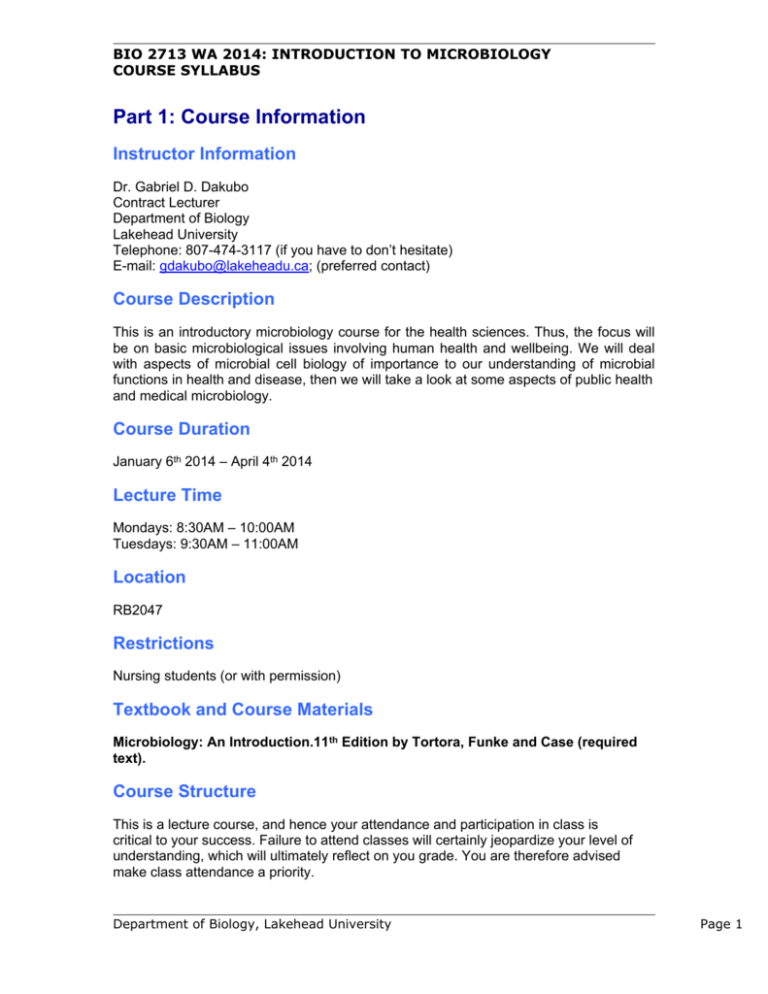
BIO 2713 WA 2014: INTRODUCTION TO MICROBIOLOGY COURSE SYLLABUS Part 1: Course Information Instructor Information Dr. Gabriel D. Dakubo Contract Lecturer Department of Biology Lakehead University Telephone: 807-474-3117 (if you have to don’t hesitate) E-mail: gdakubo@lakeheadu.ca; (preferred contact) Course Description This is an introductory microbiology course for the health sciences. Thus, the focus will be on basic microbiological issues involving human health and wellbeing. We will deal with aspects of microbial cell biology of importance to our understanding of microbial functions in health and disease, then we will take a look at some aspects of public health and medical microbiology. Course Duration January 6th 2014 – April 4th 2014 Lecture Time Mondays: 8:30AM – 10:00AM Tuesdays: 9:30AM – 11:00AM Location RB2047 Restrictions Nursing students (or with permission) Textbook and Course Materials Microbiology: An Introduction.11th Edition by Tortora, Funke and Case (required text). Course Structure This is a lecture course, and hence your attendance and participation in class is critical to your success. Failure to attend classes will certainly jeopardize your level of understanding, which will ultimately reflect on you grade. You are therefore advised make class attendance a priority. Department of Biology, Lakehead University Page 1 BIO 2713 SDE 2013: INTRODUCTION TO MICROBIOLOGY COURSE SYLLABUS Part 2: Course Objectives This course is designed for you as a nursing student to understand the important roles microorganisms play in human health and wellbeing. Although well engrained in the minds of everybody, including health care professionals that microbes are harmful, they are more beneficial than detrimental to us. To really appreciate how microbes affect our health, you need to understand the basic biology of microorganisms, including microbial anatomy, physiology, growth, genetics, and metabolism. This core knowledge is what will lead you to recognize microbes as etiologic agents of disease, their mechanisms of pathogenicity, modes of spread, sensitivity to chemotherapy and resistance to some antimicrobial agents. You will meet these course objectives by thoroughly studying the various modules (spending at least 3 hours per week on each module), preparing for each exam/quiz, and contributing to discussions as necessary. Use the study objectives and questions in the power point presentations, as well as questions at the end of each chapter as a guide to test your comprehension of the contents in the chapter. Please enjoy microbiology by challenging yourself!!! Department of Biology, Lakehead University Page 2 BIO 2713 WA 2014: INTRODUCTION TO MICROBIOLOGY COURSE SYLLABUS Part 3: Course Outline LECTURE SCHEDULE Week 1 2 3 4 5 6 7 8 9 11 12 Lecture topic The microbial world and you Functional anatomy of prokaryotic and eukaryotic cells Microbial metabolism Midterm 1 Microbial growth and control Microbial genetics Biotechnology and DNA technology Midterm 2 Principles of disease and epidemiology Microbial mechanisms of pathogenicity Basic Immunology Chapters 1 4 5 6/7 8 9 14 15 16-19 Grading Policy Graded Course Activities Description 2 Midterm Exam (25% each) 1 Final Exam Total Points Percentage Points 50% 50% 100 Department of Biology, Lakehead University Page 3 BIO 2713 WA 2014: INTRODUCTION TO MICROBIOLOGY COURSE SYLLABUS Department of Biology, Lakehead University Page 4
